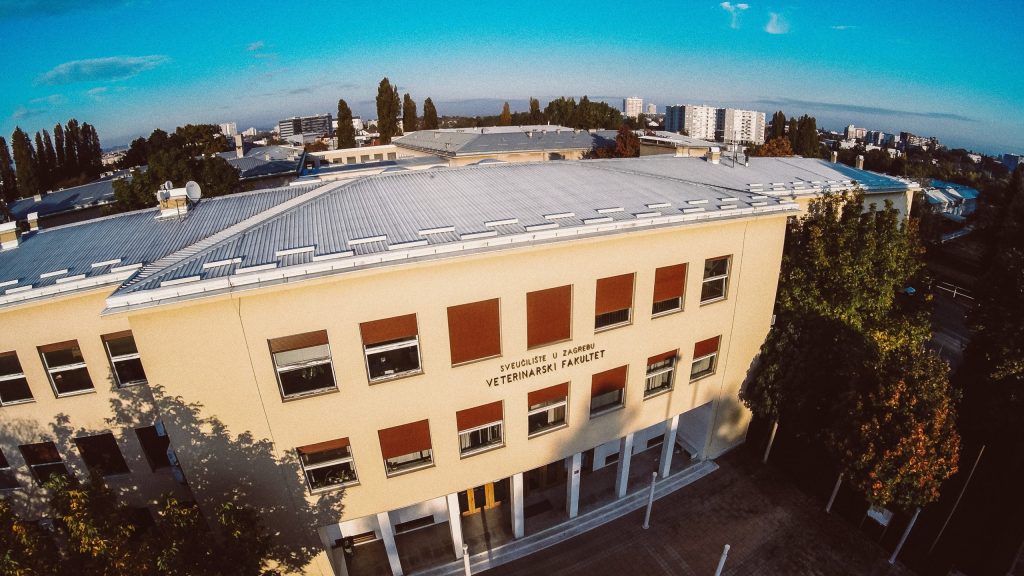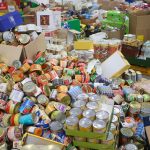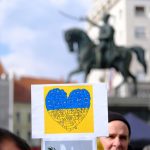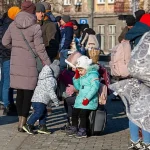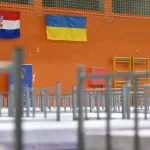Tomorrow will be two weeks since Russia launched a full-scale invasion of Ukraine. The result is a nearly 14-day war that has claimed the lives of 3,393 Ukrainian civilians and injured 9,000 others. Additionally, it is reported that as of yesterday, more than two million Ukrainians have fled their country because of the war. Some, especially in the first days of the Russian invasion, crossed the borders by car, but the vast majority are women, children, and the elderly on foot. It is estimated that 1,204,000 Ukrainian civilians have arrived in Poland, 191,000 in Hungary, 141,000 in Slovakia, 83,000 in Moldova, 82,000 in Romania, 453 in Belarus, 99,000 in Russia, and 210,000 in other European countries. And the numbers of Ukrainian refugees, as well as dead and wounded, continue to rise as the Russian army advances.
With reduced or ruled out chances of intervention by other countries in the conflict, for fear of a world war, the rest of the world has chosen to isolate Russia with a large number of political and economic sanctions, which range from severe financial blockade, cutting off diplomatic ties, cancellation of cultural events in the country, and even the suspension of their sports teams or athletes in international or continental competitions.
But in addition to the sanctions against Russia, in these two weeks, a large number of efforts and gestures of solidarity to assist Ukrainian refugees were registered throughout the continent. Countless civilians have appeared at the borders to welcome Ukrainian refugees with food, clothing, and transportation. Some have even entered Ukraine to pick up those who are still walking, making it easier for them to reach the border.
In Croatia, centers have been set up that serve as temporary accommodation for refugees in cities such as Zagreb, Varaždin, Osijek, or Vukovar. Likewise, throughout the country, a large number of citizens have organized themselves to receive donations and coordinate their transportation to the border. Also noteworthy are the marches in support and solidarity towards Ukraine, which also call for peace and the end of the Russian invasion. Most notably, the one that took place on Saturday at Ban Jelačić square in Zagreb.
But one gesture, in particular, deserves recognition, not only for the gesture itself but because it opens the door to other ways of assisting the victims and those affected by the Russian invasion of Ukraine. And it is that, among the millions of Ukrainians who have had to leave their homes and their country, many are university students who have been forced to stop their studies. Thus, the Faculty of Veterinary Medicine of the University of Zagreb has provided that Ukrainian veterinary students can complete their studies, validate their courses, and complete their clinical practices in the Croatian capital, free of charge and covering food expenses, and more.
Yesterday, in a public statement shared on its official website, the Faculty of Veterinary Medicine announced:
”The Faculty of Veterinary Medicine of the University of Zagreb expresses its sincere support to the Ukrainian people in light of the aggression against the sovereign Republic of Ukraine. With great concern, we are following the news about the events of the war in our friendly country Ukraine and express our deep sorrow for the suffering of the Ukrainian people. We feel sincere sympathy for all Ukrainian students, fellow teachers, and the entire Ukrainian nation, and we wish for an end to all aggression on the territory of the Republic of Ukraine.
We would like to help the suffering Ukrainian people and offer Ukrainian veterinary students the possibility of continuing their studies at the Faculty of Veterinary Medicine of the University of Zagreb.
This includes:
- Continuation of their education free of charge from the first to the sixth year, in Croatian or English.
- The possibility of completing parts of their course at our Faculty, as part of the student exchange program.
- Completion of clinical practice at our Faculty’s clinics including professional fieldwork.
- Free meals in the form of lunch and evening meals in the student restaurants.
- Provision of continuous support to the development of their careers, with academic and psychological counseling (Office for Career Development and Academic and Psychological Counselling +385 1 2390 330; [email protected])
- An individual approach to resolving problems and classes missed as a result of the current situation.
Ukrainian veterinary students who would like to continue their studies at the Faculty of Veterinary Medicine of the University of Zagreb should send an e-mail ([email protected]) for further details.
For more on the Ukraine crisis and Croatia, as well as breaking news, follow our news section.

